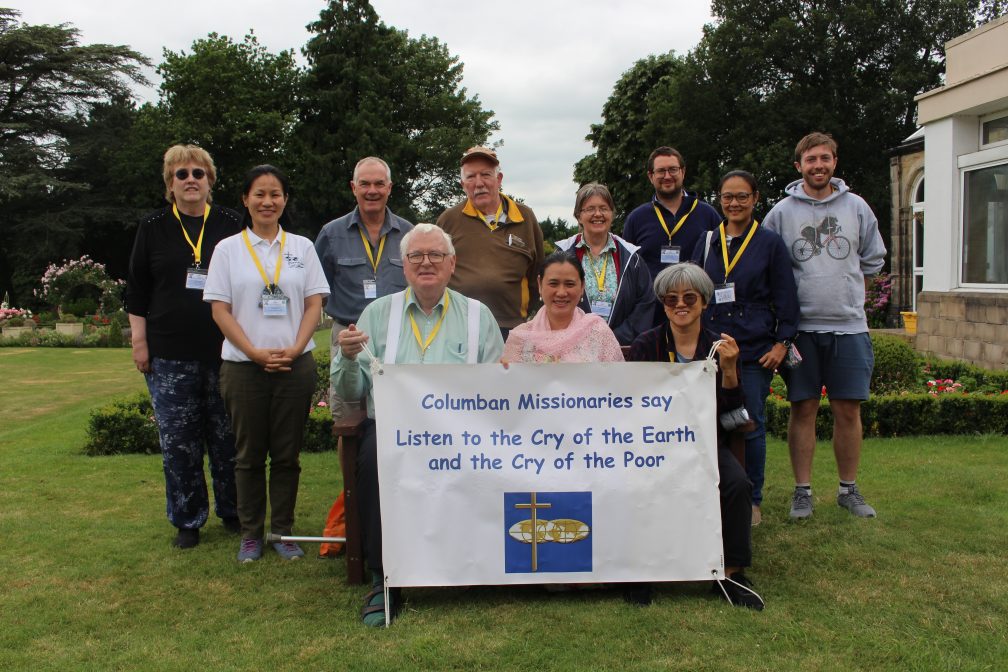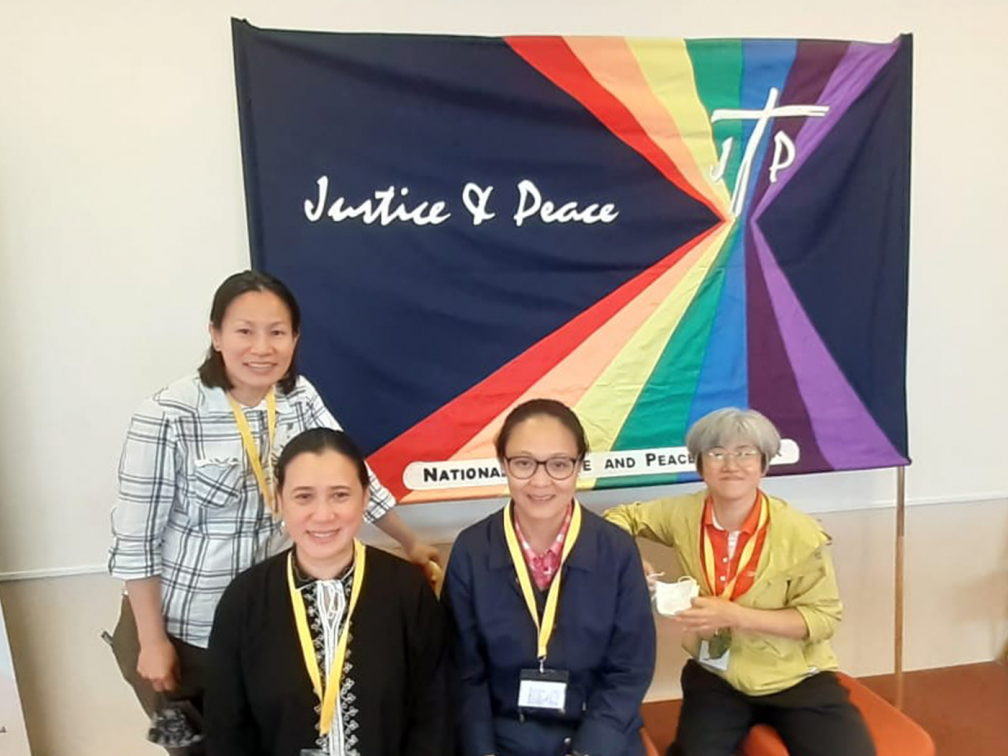The NJPN conference held between 23rd-25th July in Swanwick, Derbyshire, centered around the theme: ‘Moment of Truth – Action for Life on Earth’, brought together Justice and Peace activists from all over the country. A number of interesting talks were given by key speakers such as Lorna Gold, Chair of the Board of the Global Catholic Climate Movement and Mark Rotherham, of the Northern Dioceses Environmental Group. Topics related to global climate crisis, ecology and COP26 became points of discussion and raised utmost attention that requires urgent action. The most recent pressing climate change issues we are experiencing such as heat waves in Canada, shocking floods in Germany and the heaviest rainfall recorded in 1000 years in China gives a clear signal that Mother Earth is crying out for help. From this dire warning, there is no doubt that the time for action is now.
“Living our vocation to be protectors of God’s handiwork is essential to a life of virtue; it is not an optional or a secondary aspect of our Christian experience.”
Lay Missionary Sophia Ting attended the conference and explains, “Numerous times throughout the conference I heard ‘ecological conversion’ being the way to save mother earth. As a responsible human being and as a missionary, we have the duty to care and protect the earth from suffering more damage.” Laudato Si #217
“Living our vocation to be protectors of God’s handiwork is essential to a life of virtue; it is not an optional or a secondary aspect of our Christian experience. Pope Francis in Let Us Dream says, “We are challenged to have ‘eyes of compassion’ and not to build walls but bridges to unlock ourselves and open our hearts… to act to the cry of the poor.””
She continues, “Reflecting upon what I have seen and heard during the conference, I am challenged by my own conscience. What has God placed in my heart? What is my missionary vocation towards justice, peace and creation? What is ethical for me to do when the earth has been overly exploited and it leaves a pile of filth to our future generations? How can I live my life more simply to be in solidarity with the call to care for our common home?”
Sophia adds, “Committing to an ecological conversion and practicing peace and nonviolence is how we ought to live at this crucial time. In my missionary calling to be a peacemaker, it entails me having an open mind to obediently search for the truth and engaging in open dialogue and active listening to improve relationships and enhance close connection, not only with the people, but with the environment as well. It means full participation with God in His process of creation that is ever on-going. It involves changing my way of thinking and my way of living. In the web of life where we are all interconnected, we can become the voice to call for justice for our suffering brothers and sisters in the poorer parts of the world who often suffer more damage and whose voices are often being ignored. During the conference I was continuously and intentionally made aware that fossil fuel divestment is becoming increasingly critical for salvaging a viable future, and investment in clean and renewable energy should be promoted.”
She adds, “Clearly an ecological conversion is the way forward if we care to give our future generations a better home they deserve. “As believers, we do not look at the world from without but from within, conscious of the bonds with which the Father has linked us to all beings. By developing our individualism God-given capacities, an ecological conversion can inspire us to greater creativity and enthusiasm in resolving the world’s problems and in offering ourselves to God “as a living sacrifice, holy and acceptable’ (Rom 12:1). “We do not understand our superiority as a reason for personal glory or irresponsible dominion, but rather as a different capacity which, in its turn, entails a serious responsibility stemming from our faith.” Laudato Si #220.
Teresa Chuah Hui-Ling accompanied Sophia on the weekend conference. She explains “I found the speakers at the conference very motivating and inspirational. They contributed to making the conference uplifting, which, after a long lockdown, was most welcome. It was a great opportunity for those of us who loves Mother Earth and who are passionate about making our common home a better place to live, especially for the next generation, to come together.”
She adds, “It was a great experience to see people of all ages deep in discussion after every talk and workshop, huddled in every corner of the big garden of the conference centre.”
Teresa goes on to explain, “I embraced the whole experience, from meeting new people, participating in different workshops and listening to the different key speakers. Besides the great food, and the accommodation, the Mass and the homily were enjoyable as were the numerous walks in the garden. I thoroughly enjoyed the opportunity to bond with my companions over a glass of Guinness at night in the large garden after the long day. It is just like a little holiday for me! I liked that it was something different, an opportunity to recharge and refresh after the pandemic.”
“Speaker Lorna Gold is a member of the Global Catholic Climate Movement and led an interesting discussion titled “Awakening to Our Children ‘s Future.” As a mother she identifies with Mother Earth. She told us her conversion began because Laudato Si’ was published in the same year that her child was born. She explained her awakening from Laudato Si’ has led her into action and this action has becomes a way of life.”
Teresa explains, “Her question: “What kind of world do I leave behind to my two kids?” really resonated with me. I don’t have children, but I don’t want to see young children and young generations suffer the extreme weather nor the biodiversity loss that will likely occur of we don’t make changes. The extreme weather we’ve seen of late, the heat waves in Canada and the heavy rainfall in China is frightening and leaves lots of vulnerable people behind. Indeed it is important we take action now. The pandemic has taught us we all are connected with humans and Mother Earth. We all face a common threat. We cannot come out from the crisis if we don’t change.
Change starts with me. What can I contribute?”
Besides a number of discussions, conference participants were given the opportunity to attend workshops on such topics as: ‘Sustainable Development Goals’, ‘Conflict and Environment,’ and ‘Attendance at COP26 – real or virtual’. Fellow Lay Missionary Roberta Kim who also attended the conference reflects on one of these workshops titled ‘Nature Explorer walk with a Botanist’.


